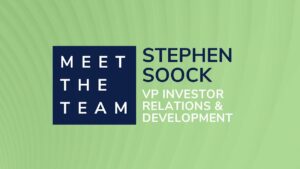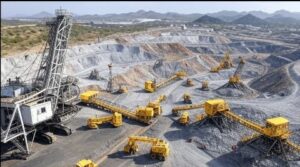Cash provided by operations close to five times higher than last year’s first half
COEUR D’ALENE, Idaho–(BUSINESS WIRE)– Hecla Mining Company (NYSE:HL) today announced second quarter 2020 financial and operating results.
HIGHLIGHTS
- All mines in operation (non-U.S. mines had government-mandated shutdowns of less than a month).
- Sales of $166.4 million, an increase of 24% over prior year period.
- Gross profit of $34.1 million, an increase of $54.3 million over prior year period.
- Cash provided by operating activities was $37.5 million while there were $10.8 million additions to properties, plant, equipment and mineral interests, resulting in $26.7 million of quarterly free cash flow.
- Silver production of 3.4 million ounces and gold production of 59,982 ounces.
- Net loss applicable to common shareholders of $14.2 million, or $0.03 per share.
- Adjusted net income applicable to common shareholders of $7.3 million, or $0.01 per share.1
- Adjusted EBITDA of $61.3 million and net debt/adjusted EBITDA (last 12 months) of 2.0x. 2,3
- Strong balance sheet with cash and cash equivalents of $76 million, repaid $160 million of revolving line of credit, leaving $50 million outstanding; expect full repayment by year end.
- In the third quarter, agreed with Investissement Quebec to issue C$50 million (US$36.8 million) of senior unsecured notes yielding 5.74%; expected use of proceeds for purchases of existing 7.25% coupon bonds, and Casa Berardi capital expenditures.
- Annual silver and gold production and cost guidance is unchanged.
“Despite the pandemic, Hecla had its second highest quarterly silver production since 2016 which, combined with higher prices, resulted in almost 25% more revenue than a year ago and generated about $27 million of free cash flow,” said Phillips S. Baker, Jr., Hecla’s President and CEO. “I am extremely proud of our workforce’s adaptability and commitment in this challenging time which positions Hecla well to improve our cash flow generation in this higher silver and gold price environment.”
Mr. Baker continued, “Hecla currently produces about a third of all the silver mined in the U.S., almost three times larger than the next primary producer. That number is expected to grow as Lucky Friday ramps up. As the United States’ largest and oldest silver producer with America’s largest silver reserve and resource, Hecla gives investors unique exposure to higher silver prices.”
FINANCIAL OVERVIEW
| Second Quarter Ended | Six Months Ended | ||||||||||||
| HIGHLIGHTS | June 30, 2020 | June 30, 2019 | June 30, 2020 | June 30, 2019 | |||||||||
| FINANCIAL DATA | |||||||||||||
| Sales (000) | $ | 166,355 | $ | 134,172 | $ | 303,280 | $ | 286,789 | |||||
| Gross profit (loss) (000) | $ | 34,079 | $ | (20,243) | $ | 45,451 | $ | (16,799) | |||||
| Loss applicable to common shareholders (000) | $ | (14,166) | $ | (46,670) | $ | (31,489) | $ | (72,341) | |||||
| Basic and diluted loss per common share | $ | (0.03) | $ | (0.10) | $ | (0.06) | $ | (0.15) | |||||
| Net Loss (000) | $ | (14,028) | $ | (46,532) | $ | (31,213) | $ | (72,065) | |||||
| Cash provided by (used in) operating activities (000) | $ | 37,526 | $ | (11,317) | $ | 42,453 | $ | 8,713 |
Net loss applicable to common shareholders for the second quarter 2020 was $14.2 million, or $0.03 per share, compared to net loss applicable to common shareholders of $46.7 million, or $0.10 per share, for the same period in 2019. The improved second quarter result was mainly due to the following items:
- Improved gross profit at each operation due to higher production and prices. Combined Greens Creek, Casa Berardi and Nevada operations generated $53.3 million more gross profit than the prior year period.
- Unrealized gains on equity investments of $6.4 million compared to losses of $1.1 million in the prior-year period.
- Lower exploration costs by $2.4 million compared to the second quarter of 2019, as the Company reduced discretionary spending during the pandemic.
- Lower general and administrative expense by $1.9 million, primarily due to lower incentive compensation.
These variances were partially offset by:
- Loss on metals derivative contracts of $14.0 million compared to a gain of $3.8 million in the second quarter of 2019, of which $5 million of the loss is a reversal of the gain in first quarter of 2020. The remainder is divided between the cost of the puts and increase in zinc and lead prices.
- Higher ramp-up and suspension costs by $7.3 million resulting from (i) Lucky Friday transitioning production between salary and hourly personnel and the recall, hiring and training of the returning hourly workforce, (ii) placement of the Midas and Hollister mines and Aurora mill in Nevada on care-and-maintenance, and (iii) the temporary suspension of operations at Casa Berardi and San Sebastian in response to COVID-19.
- $2.0 million in expense recognized for the value of Hecla shares contributed to the Hecla Charitable Foundation.
Cash provided by operating activities of $37.5 million in the second quarter 2020, $48.8 million higher than the $11.3 million of cash used by operating activities in the second quarter of 2019, due mainly to the $54.3 million increase in gross profit, partly offset by the net impact of working capital changes.
Adjusted EBITDA was $61.3 million compared to $17.7 million in the second quarter of 2019, reflecting the improved gross profit.
Capital expenditures at the operations totaled $13.7 million for the second quarter compared to $38.9 million in the second quarter of 2019, with the decrease primarily due to planned lower expenditures at the operations in 2020. Expenditures at Lucky Friday, Greens Creek and Casa Berardi were each about $4.5 million.
Metals Prices
The average realized silver price in the second quarter was $18.44 per ounce, 23% higher than the $15.01 in the second quarter of 2019. The average realized gold price increased 31%, to $1,736 per ounce. Average realized lead and zinc prices decreased 7% and 24%, respectively.
| Three Months Ended June 30 | ||||||||
| 2020 | 2019 | |||||||
| Silver – | London PM Fix ($/ounce) | $ | 16.33 | $ | 14.89 | |||
| Realized price per ounce | $ | 18.44 | $ | 15.01 | ||||
| Gold – | London PM Fix ($/ounce) | $ | 1,711 | $ | 1,310 | |||
| Realized price per ounce | $ | 1,736 | $ | 1,322 | ||||
| Lead – | LME Final Cash Buyer ($/pound) | $ | 0.76 | $ | 0.85 | |||
| Realized price per pound | $ | 0.78 | $ | 0.84 | ||||
| Zinc – | LME Final Cash Buyer ($/pound) | $ | 0.89 | $ | 1.25 | |||
| Realized price per pound | $ | 0.89 | $ | 1.17 |
Base Metals Forward Sales Contracts And Precious Metals Put Contracts
Hecla enters into financially settled forward sales contracts to manage exposure to price variances on silver, gold, zinc and lead concentrate shipments (also called provisional hedges). In addition, the Company uses financially settled forward contracts to manage exposure to changes in prices of zinc and lead (but not silver and gold) contained in the forecasted future concentrate shipments.
| Percentage of Production Hedged | ||||
| Average Price per Pound | ||||
| Forward Sales | ||||
| Zinc | Lead | |||
| % of sales | Price | % of sales | Price | |
| Hedges as a % of Sales | ||||
| Q3/2020 | 89% | $0.88 | 95% | $0.75 |
| Q4/2020 | 97% | $0.89 | 43% | $0.78 |
| Q1/2021 | 19% | $0.91 | 6% | $0.77 |
Hecla has also entered into put contracts to protect the minimum price it receives for silver and gold, while retaining exposure to price increases. As of June 30, the Company has spent about $0.52 per ounce on buying silver puts for a portion of silver production and about $84 per ounce on buying gold puts for a portion of gold production for the second half of 2020. Cost of this silver and gold protection insurance represents less than 3% of forecasted revenue.
OPERATIONS OVERVIEW
Overview
The following table provides the production summary on a consolidated basis for the second quarter and six months ended June 30, 2020 and 2019:
| Second Quarter Ended | Six Months Ended | |||||||
| June 30, 2020 | June 30, 2019 | June 30, 2020 | June 30, 2019 | |||||
| PRODUCTION SUMMARY | ||||||||
| Silver – | Ounces produced | 3,403,781 | 3,018,765 | 6,649,250 | 5,941,896 | |||
| Payable ounces sold | 3,348,639 | 2,418,586 | 5,930,918 | 5,316,669 | ||||
| Gold – | Ounces produced | 59,982 | 60,768 | 118,774 | 120,789 | |||
| Payable ounces sold | 51,398 | 59,127 | 108,501 | 120,063 | ||||
| Lead – | Tons produced | 8,977 | 5,515 | 14,870 | 11,299 | |||
| Payable tons sold | 8,026 | 3,963 | 12,156 | 8,811 | ||||
| Zinc – | Tons produced | 17,855 | 13,315 | 30,702 | 27,259 | |||
| Payable tons sold | 11,989 | 9,823 | 21,825 | 19,356 |
The following tables provide a summary of the final production, cost of sales and other direct production costs and depletion, depreciation and amortization, cash cost, after by-product credits, per silver and gold ounce, and AISC, after by-product credits, per silver and gold ounce for the second quarter and six months ended June 30, 2020, with comparisons to the prior year period:
| Second Quarter Ended | Greens Creek | Lucky Friday | San Sebastian | Casa Berardi | Nevada Operations | ||||||||||||||||||||||||||||||||||||
| June 30, 2020 | Silver | Gold | Silver | Gold | Silver | Silver | Gold | Gold | Silver | Gold | Silver | ||||||||||||||||||||||||||||||
| Production (ounces) | 3,403,781 | 59,982 | 2,753,919 | 13,104 | 469,537 | 158,842 | 1,331 | 30,756 | 5,495 | 14,791 | 15,988 | ||||||||||||||||||||||||||||||
| Increase/(decrease) | 385,016 | (786 | ) | 381,649 | (153 | ) | 342,390 | (304,893 | ) | (2,216 | ) | (514 | ) | (669 | ) | 2,097 | (33,461 | ) | |||||||||||||||||||||||
| Cost of sales and other direct production costs and depreciation, depletion and amortization (000) | $ | 73,137 | $ | 59,139 | $ | 57,672 | $ | — | $ | 11,455 | $ | 4,010 | $ | — | $ | 45,582 | $ | — | $ | 13,557 | $ | — | |||||||||||||||||||
| Increase/(decrease) | $ | 11,393 | $ | (33,532 | ) | $ | 12,022 | N/A | $ | 6,504 | $ | (7,133 | ) | N/A | $ | (9,570 | ) | N/A | $ | (23,962 | ) | N/A | |||||||||||||||||||
| Cash costs, after by-product credits, per silver or gold ounce 4, 6 | $ | 4.97 | $ | 846 | $ | 5.19 | $ | — | $ | — | $ | 1.14 | $ | — | $ | 919 | $ | — | $ | 694 | $ | — | |||||||||||||||||||
| Increase/(decrease) | $ | 1.47 | $ | (305 | ) | $ | 2.81 | N/A | $ | — | $ | (8.08 | ) | N/A | $ | (182 | ) | N/A | $ | (580 | ) | N/A | |||||||||||||||||||
| AISC, after by-product credits per silver or gold ounce5 | $ | 9.33 | $ | 977 | $ | 7.11 | $ | — | $ | — | $ | 1.85 | $ | — | $ | 1,077 | $ | — | $ | 769 | $ | — | |||||||||||||||||||
| Increase/(decrease) | $ | (1.83 | ) | $ | (723 | ) | $ | 0.74 | N/A | $ | — | $ | (13.65 | ) | N/A | $ | (360 | ) | N/A | $ | (1,578 | ) | N/A |
| Six Months Ended | Greens Creek | Lucky Friday | San Sebastian | Casa Berardi | Nevada Operations | ||||||||||||||||||||||||||||||||||||||
| June 30, 2020 | Silver | Gold | Silver | Gold | Silver | Silver | Gold | Gold | Silver | Gold | Silver | ||||||||||||||||||||||||||||||||
| Production (ounces) | 6,649,250 | 118,774 | 5,529,626 | 25,377 | 565,285 | 505,467 | 4,133 | 57,508 | 11,429 | 31,756 | 37,443 | ||||||||||||||||||||||||||||||||
| Increase/(decrease) | 707,354 | (2,015 | ) | 924,609 | (2,208 | ) | 264,511 | (399,347 | ) | (2,944 | ) | (5,561 | ) | (2,975 | ) | 8,698 | (79,444 | ) | |||||||||||||||||||||||||
| Cost of sales and other direct production costs and depreciation, depletion and amortization (000) | $ | 133,451 | $ | 124,378 | $ | 106,853 | $ | — | $ | 14,287 | $ | 12,311 | $ | — | $ | 93,907 | $ | — | $ | 30,471 | $ | — | |||||||||||||||||||||
| Increase/(decrease) | $ | 3,062 | $ | (48,821 | ) | $ | 7,091 | N/A | $ | 7,155 | $ | (11,184 | ) | N/A | $ | (10,326 | ) | N/A | $ | (38,495 | ) | N/A | |||||||||||||||||||||
| Cash costs, after by-product credits, per silver or gold ounce 4, 6 | $ | 5.38 | $ | 952 | $ | 5.41 | $ | — | $ | — | $ | 5.09 | $ | — | $ | 1,081 | $ | — | $ | 716 | $ | — | |||||||||||||||||||||
| Increase/(decrease) | $ | 2.48 | $ | (261 | ) | $ | 3.95 | N/A | $ | — | $ | (5.11 | ) | N/A | $ | (26 | ) | N/A | $ | (786 | ) | N/A | |||||||||||||||||||||
| AISC, after by-product credits per silver or gold ounce5 | $ | 10.10 | $ | 1,135 | $ | 7.51 | $ | — | $ | — | $ | 5.65 | $ | — | $ | 1,327 | $ | — | $ | 787 | $ | — | |||||||||||||||||||||
| Increase/(decrease) | $ | (0.19 | ) | $ | (594 | ) | $ | 2.66 | N/A | $ | — | $ | (10.37 | ) | N/A | $ | (60 | ) | N/A | $ | (1,879 | ) | N/A |
Greens Creek Mine – Alaska
Operations at Greens Creek continue strongly, with higher silver production due to higher grades. The mill operated at an average of 2,366 tons per day (tpd), which was slightly higher than the second quarter of 2019. The per ounce silver costs were higher primarily due to lower by-products on a per ounce basis resulting from lower zinc and lead prices and higher silver production, higher treatment costs due to unfavorable changes in smelter terms and COVID-19 costs. The increased silver production means there is less by-product credit to apply to each ounce of silver, so the cost per ounce after by-products is higher.
The mine quickly implemented a 14-day quarantine for all employees before coming to Admiralty Island, where the mine is located. This proactive approach helped to protect the workforce from the potential spread of the COVID-19 virus and was consistent with the Governor’s order. With the addition of strict testing protocols, the mine recently reduced the quarantine period to 7 days for workers traveling to Juneau to work at Greens Creek. This change is expected to continue to protect our people and the community, and reduce the cost associated with operating under the pandemic.
Casa Berardi – Quebec
At the Casa Berardi mine, the decrease in gold ounces compared to the second quarter of 2019 is the result of the Government-mandated shutdown of operations due to COVID-19. The mine restarted operations on April 15, three weeks after the shutdown, and is performing well. The mill operated at an average of 3,595 tpd, which was 6% lower than the second quarter of 2019. The decrease in cash cost, after by-product credits, per gold ounce is mainly due to lower mine contractor costs as the contractor was re-mobilized slowly. The lower mining costs, along with lower capital and exploration spending, resulted in lower AISC, after by-product credits, of $1,077 per gold ounce, compared to $1,437 in the second quarter of 2019.5
Despite COVID-19, process improvement activities focused on improving mill reliability, throughput and recovery continued. These efforts are expected to lead to reduced costs and increased cash flow when complete but are somewhat delayed by the COVID-19 restrictions. Production from Casa Berardi is expected to be higher in second half of the year as production from the higher-grade 148 Zone increases.
Lucky Friday Mine – Idaho
At the Lucky Friday Mine, the ramp-up to full production is proceeding as expected. The #2 shaft hoist upgrade project was completed on schedule and below budget. The mine is on target to return to pre-strike production levels in the fourth quarter, so 2021 is anticipated to have a full year of production.
Underground testing and modification of the Remote Vein Miner (RVM) continues in Sweden, but the project is being negatively impacted by COVID-19, as travel restrictions has prevented Hecla oversight and Sweden is operating with a reduced work schedule. Acceptance testing in Sweden will continue until the machine meets requisite performance parameters. In parallel, the Company is pursuing additional initiatives to increase productivity at the mine.
San Sebastian – Mexico
At the San Sebastian mine, the mill restarted on May 30 after the Government-mandated shutdown of operations due to COVID-19. Silver and gold production were lower compared to the second quarter of 2019 due to lower ore grades, as well as the shutdown. The mill operated at an average of 528 tpd when it operated, which was slightly higher than the second quarter of 2019.
The cash cost, after by-product credits, decreased due to higher by-product gold credits on a per ounce basis primarily as a result of higher gold prices, partially offset by lower silver production. The AISC, after by-product credits, was lower due to the decrease attributed to the higher by-product credits, along with lower capital and exploration spending.
Mining of oxide material is expected to be completed in the third quarter and milling in the fourth quarter of 2020. The Company continues to assess the viability of mining the sulfide Hugh Zone, and continues exploration of El Toro, but expects to idle the mine in the fourth quarter.
Nevada Operations
For the Nevada operations, very high grades were experienced in the material being processed at the Midas mill. Not all the material processed was sold in the second quarter, with the remainder sold in the third quarter. No further processing is currently anticipated in the Midas mill. Mining is now focused primarily on material for the 30,000-ton bulk sample test, of which approximately 16,000 tons have been accumulated to date, with mining expected to continue through the remainder of 2020. The bulk sample test is designed to provide information on alternate mining techniques, water management, and process recovery rates at a third-party facility. To date the geotechnical, hydrology, mining productivity and cost have all been better than anticipated. The grade and metallurgical parameters are in line with the model. The bulk sample is expected to be sent for third-party processing late in the third quarter with results expected around year end. Production from this test is expected to be between 5 and 10 thousand ounces of gold.
Ore was processed at an average of 117 tpd compared to 642 tpd in the second quarter of 2019.
EXPLORATION
Exploration expenses were $2.0 million for the second quarter, representing a 55% decrease from the prior year period, as a result of decreased activity at all sites due to the COVID-19 pandemic.
Greens Creek – Alaska
At Greens Creek, the reduced drilling program was focused on supporting active mining with limited pre-production drilling in the Southwest Zone and definition drilling in the East Ore Zone. Strong definition drilling assay results continue to confirm and upgrade the East Ore Zone resources. In the East OreZone, intersections targeting the middle portion of the zone along 600 feet of strike length, included 12.2 oz/ton silver, 0.09 oz/ton gold, 7.7% zinc and 2.8% lead over 7.0 feet, and 10.6 oz/ton silver, 0.12 oz/ton gold, 16.6% zinc and 5.0% lead over 3.0 feet. Once the current phase of definition drilling in the East Ore Zone is completed, the planned activity in the third quarter of 2020 is to further define and explore the 200 South Zone.
More complete drill assay highlights from Greens Creek can be found in Table A at the end of the release.
Casa Berardi – Quebec
At Casa Berardi, drilling in the East Mine focused on defining continuity and expanding mineralization in the 160 Zone Pit area and expanding mineralization in the high-grade underground 148 Zone. Definition drilling in the 160 Zone targeted mineralization below the current 160 Pit shell to further define the continuity of the 160 lenses. Intersections from this drilling included 0.05 oz/ton gold over 42.6 feet including 0.18 oz/ton gold over 5.2 feet and confirms continuity of the mineralized 160 lenses. Exploration drilling in the East Mine occurred in the 148 Zone from underground targeting the eastern and western down-plunge trend of the known high-grade mineralization. At depth, the 148-01 lens appears to be splitting into two lenses, one north and one south of the Casa Berardi Fault. Intersections include 0.32 oz/ton gold over 19.7 feet including 0.78 oz/ton gold over 4.6 feet, 0.07 oz/ton gold over 13.4 feet including 0.38 oz/ton gold over 1.1 feet and 0.20 oz/ton gold over 31.2 feet including 1.15 oz/ton gold over 2.0 feet.
In the West Mine area, drilling targeted the depth extensions of the 128 Zone. Recent high-grade intersections include 0.82 oz/ton gold over 11.2 feet including 2.11 oz/ton gold over 4.1 feet. These initial results show higher grades below the current resources and are open at depth for expansion.
In the third quarter of 2020, underground drilling is planned to expand and refine resources in the 123, 124, and 128 zones in the West Mine and the high-grade 148 Zone in the East Mine.
More complete drill assay highlights from Casa Berardi can be found in Table A at the end of the release.
San Sebastian – Mexico
At San Sebastian, one surface reverse circulation drill rig completed the 2020 Short Vertical Reverse Circulation (SVRC) drilling grid designed to explore for new veins and near-surface oxide mineralization through cover by sampling overburden and bedrock west of the current El Toro resource area. Results to date are positive with the discovery of a new vein and two additional strong anomalies west of the El Toro vein. These positive results continue to demonstrate the effectiveness of using SVRC drilling to discover new veins under thick soil cover. Follow-up drilling for this new vein and anomalies is being evaluated.
Exploration drilling at El Toro targeted areas between known ore shoots within the El Toro Vein to expand mineralization laterally between known ore shoots. Intersections include 0.06 oz/ton gold and 8.4 oz/ton silver over 5.3 feet and 0.07 oz/ton gold and 7.8 oz/ton silver over 2.5 feet.
In the third quarter of 2020, exploration drilling is planned to follow-up on the new vein and the multiple anomalies west of the El Toro vein generated from the SVRC drilling program.
More complete drill assay highlights from San Sebastian can be found in Table A at the end of the release.
PRE-DEVELOPMENT
Pre-development spending was $0.6 million for the quarter, compared to $0.8 million for the second quarter of 2019, principally to advance the permitting of Rock Creek and Montanore.
DIVIDENDS
Common
TheBoard of Directors elected to declare a quarterly cash dividend of $0.0025 per share of common stock, payable on or about September 1, 2020, to shareholders of record on August 19, 2020. The realized silver price was $18.44 in the second quarter and therefore did not satisfy the criteria for a larger dividend under the Company’s dividend policy.
Preferred
The Board of Directors elected to declare a quarterly cash dividend of $0.875 per share of preferred stock, payable on or about October 1, 2020, to shareholders of record on September 15, 2020.
MANAGEMENT CHANGES
Hecla today announced that Mr. Mike Westerlund, Vice President of Investor Relations, is leaving the company effective August 14, 2020. A search is underway for a replacement.
“I want to thank Mike for his significant contributions to Hecla over the past eight years and wish him well in his future endeavors. I know the investment community and the Hecla team enjoyed working with him, and we plan on building on his good work in the future,” said Mr. Baker.
CONFERENCE CALL AND WEBCAST
A conference call and webcast will be held Thursday, August 6, at 10:00 a.m. Eastern Time to discuss these results. We recommend that you dial in at least 10 minutes before the call is due to commence. You may join the conference call by dialing toll-free 1-833-350-1380 or for international dialing 1-647-689-6934. The Participant Code is 5074513 and must be provided when dialing in. Hecla’s live and archived webcast can be accessed at www.hecla-mining.com under Investors.
VIRTUAL INVESTOR EVENT
Hecla will be holding a Virtual Investor Event on Friday, August 7, 2020, from 08:00 a.m. to 10:00 a.m. PDT.
Hecla invites shareholders, investors, and other interested parties to schedule a personal, 30-minute virtual meeting (video or telephone) with a member of senior management. Click on the link below to schedule a call (You can also copy and paste the link into your web browser.). If you are unable to book a time, either due to high demand or for other reasons, please reach out to Mike Westerlund, VP – Investor Relations at mwesterlund@hecla-mining.com or at 604.694.7729.
- Operations call with Lauren Roberts, SR VP and COO and senior mine management: https://calendly.com/2020-q2-vie/operations
- Finance call with Lindsay Hall, SR VP and CFO: https://calendly.com/2020-q2-vie/finance
- Call with Phil Baker, President and CEO: https://calendly.com/2020-q2-vie/ceo
ABOUT HECLA
Founded in 1891, Hecla Mining Company (NYSE:HL) is a leading low-cost U.S. silver producer with operating mines in Alaska, Idaho, and Mexico and is a gold producer with operating mines in Quebec, Canada and Nevada. The Company also has exploration and pre-development properties in seven world-class silver and gold mining districts in the U.S., Canada and Mexico, and an exploration office and investments in early-stage silver exploration projects in Canada.
NOTES
Non-GAAP Financial Measures
Non-GAAP financial measures are intended to provide additional information only and do not have any standard meaning prescribed by generally accepted accounting principles in the United States (GAAP). These measures should not be considered in isolation or as a substitute for measures of performance prepared in accordance with GAAP.
(1) Adjusted net (loss) income applicable to common stockholders is a non-GAAP measurement, a reconciliation of which to net (loss) income applicable to common stockholders, the most comparable GAAP measure, can be found at the end of the release. Adjusted net (loss) income is a measure used by management to evaluate the Company’s operating performance but should not be considered an alternative to net (loss) income, or cash (used in) provided by operating activities as those terms are defined by GAAP, and does not necessarily indicate whether cash flows will be sufficient to fund cash needs. In addition, the Company may use it when formulating performance goals and targets under its incentive program.
(2) Adjusted EBITDA is a non-GAAP measurement, a reconciliation of which to net (loss) income, the most comparable GAAP measure, can be found at the end of the release. Adjusted EBITDA is a measure used by management to evaluate the Company’s operating performance but should not be considered an alternative to net (loss) income, or cash (used in) provided by operating activities as those terms are defined by GAAP, and does not necessarily indicate whether cash flows will be sufficient to fund cash needs. In addition, the Company may use it when formulating performance goals and targets under its incentive program.
(3) Net debt to adjusted EBITDA is a non-GAAP measurement, a reconciliation of which to debt and net (loss) income, the most comparable GAAP measurements, can be found at the end of the release. It is an important measure for management to measure relative indebtedness and the ability to service the debt relative to its peers. It is calculated as total debt outstanding less total cash on hand divided by adjusted EBITDA.
(4) Cash cost, after by-product credits, per silver or gold ounce is a non-GAAP measurement, a reconciliation of which to cost of sales and other direct production costs and depreciation, depletion and amortization (sometimes referred to as “cost of sales” in this release), can be found at the end of the release. It is an important operating statistic that management utilizes to measure each mine’s operating performance. It also allows the benchmarking of performance of each mine versus those of our competitors. As a silver and gold mining company, management also uses the statistic on an aggregate basis – aggregating the Greens Creek, Lucky Friday and San Sebastian mines – to compare performance with that of other silver mining companies, and aggregating Casa Berardi and the Nevada operations, to compare its performance with other gold mining companies. Similarly, the statistic is useful in identifying acquisition and investment opportunities as it provides a common tool for measuring the financial performance of other mines with varying geologic, metallurgical and operating characteristics. In addition, the Company may use it when formulating performance goals and targets under its incentive program. Cash cost, after by-product credits, per silver ounce is not presented for Lucky Friday for the second quarters and first halves of 2020 and 2019, as production was limited due to the strike and results are not comparable to those from prior periods and are not indicative of future operating results under full production.
(5) All in sustaining cost (AISC), after by-product credits, is a non-GAAP measurement, a reconciliation of which to cost of sales and other direct production costs and depreciation, depletion and amortization, the closest GAAP measurement, can be found in the end of the release. AISC, after by-product credits, includes cost of sales and other direct production costs, expenses for reclamation and exploration at the mine sites, corporate exploration related to sustaining operations, and all site sustaining capital costs. AISC, after by-product credits, is calculated net of depreciation, depletion, and amortization and by-product credits. AISC, after by-product credits, per silver ounce is not presented for Lucky Friday for the second quarters and first halves of 2020 and 2019, as production was limited due to the strike and results are not comparable to those from prior periods and are not indicative of future operating results under full production.
Current GAAP measures used in the mining industry, such as cost of goods sold, do not capture all the expenditures incurred to discover, develop and sustain silver and gold production. Management believes that all in sustaining costs is a non-GAAP measure that provides additional information to management, investors and analysts to help in the understanding of the economics of our operations and performance compared to other producers and in the investor’s visibility by better defining the total costs associated with production. Similarly, the statistic is useful in identifying acquisition and investment opportunities as it provides a common tool for measuring the financial performance of other mines with varying geologic, metallurgical and operating characteristics. In addition, the Company may use it when formulating performance goals and targets under its incentive program.
(6) Cash cost, after by-product credits, per gold ounce is only applicable to Casa Berardi and Nevada Operations production. Gold produced from Greens Creek and San Sebastian is treated as a by-product credit against the silver cash cost.
Numbers may be rounded.
Cautionary Statements to Investors on Forward-Looking Statements
This release contains “forward-looking statements” within the meaning of Section 27A of the Securities Act of 1933, as amended, and Section 21E of the Securities Exchange Act of 1934, as amended, which are intended to be covered by the safe harbor created by such sections and other applicable laws, including Canadian securities laws. When a forward-looking statement expresses or implies an expectation or belief as to future events or results, such expectation or belief is expressed in good faith and believed to have a reasonable basis. However, such statements are subject to risks, uncertainties and other factors, which could cause actual results to differ materially from future results expressed, projected or implied by the forward-looking statements. Forward-looking statements often address our expected future business and financial performance and financial condition and often contain words such as “anticipate,” “intend,” “plan,” “will,” “could,” “would,” “estimate,” “should,” “expect,” “believe,” “project,” “target,” “indicative,” “preliminary,” “potential” and similar expressions. Forward-looking statements in this news release may include, without limitation: (i) estimates of future production, sales, cash flows and costs; (ii) expectations regarding the development, growth potential, financial performance of the Company’s projects, including growth in silver production and throughput rate at Lucky Friday; (iii) the Company’s mineral reserves and resources; (iv) performance of our counterparties to our hedging arrangements, including put options; (v) the effectiveness of the Company’s protocols to mitigate the risks presented by COVID-19; (vi) improvement of mill performance at Casa Berardi and potential for reduced cost and higher cash flow; (vii) the level of borrowings under the revolving credit agreement at the end of 2020; and (viii) completion and results of the bulk sample test in Nevada; and (ix) impact of metals prices on costs and cash flows. The material factors or assumptions used to develop such forward-looking statements or forward-looking information include that the Company’s plans for development and production will proceed as expected and will not require revision as a result of risks or uncertainties, whether known, unknown or unanticipated, to which the Company’s operations are subject.
Estimates or expectations of future events or results are based upon certain assumptions, which may prove to be incorrect, which could cause actual results to differ from forward-looking statements. Such assumptions, include, but are not limited to: (i) there being no significant change to current geotechnical, metallurgical, hydrological and other physical conditions; (ii) permitting, development, operations and expansion of the Company’s projects being consistent with current expectations and mine plans; (iii) political/regulatory developments in any jurisdiction in which the Company operates being consistent with its current expectations; (iv) the exchange rate for the USD/CAD and USD/MXN, being approximately consistent with current levels; (v) certain price assumptions for gold, silver, lead and zinc; (vi) prices for key supplies being approximately consistent with current levels; (vii) the accuracy of our current mineral reserve and mineral resource estimates; (viii) the Company’s plans for development and production will proceed as expected and will not require revision as a result of risks or uncertainties, whether known, unknown or unanticipated; (ix) counterparties performing their obligations under hedging instruments and put option contracts; (x) sufficient workforce is available and trained to perform assigned tasks; (xi) weather patterns and rain/snowfall within normal seasonal ranges so as not to impact operations; (xii) relations with interested parties, including Native Americans, remain productive; (xiii) economic terms can be reached with third-party mill operators who have capacity to process our ore; (xiv) maintaining availability of water rights; (xv) factors do not arise that reduce available cash balances, (xvi) there being no material increases in our current requirements to post or maintain reclamation and performance bonds or collateral related thereto, and (xvii) the Company’s plans for refinancing its high yield notes proceeding as expected.
In addition, material risks that could cause actual results to differ from forward-looking statements include, but are not limited to: (i) gold, silver and other metals price volatility; (ii) operating risks; (iii) currency fluctuations; (iv) increased production costs and variances in ore grade or recovery rates from those assumed in mining plans; (v) community relations; (vi) conflict resolution and outcome of projects or oppositions; (vii) litigation, political, regulatory, labor and environmental risks; (viii) exploration risks and results, including that mineral resources are not mineral reserves, they do not have demonstrated economic viability and there is no certainty that they can be upgraded to mineral reserves through continued exploration; (ix) the failure of counterparties to perform their obligations under hedging instruments, including put option contracts; (x) our plans for improvements at our Nevada operations, including at Fire Creek, are not successful; (xi) our estimates for the third and fourth quarter results are inaccurate; (xii) we take a material impairment charge on our Nevada operations; and (xiii) we are unable to remain in compliance with all terms of the credit agreement in order to maintain continued access to the revolver. For a more detailed discussion of such risks and other factors, see the Company’s 2019 Form 10-K, filed on February 13, 2020, and Form 10-Q filed on each of May 7, 2020 with the Securities and Exchange Commission (SEC), as well as the Company’s other SEC filings. The Company does not undertake any obligation to release publicly revisions to any “forward-looking statement,” including, without limitation, outlook, to reflect events or circumstances after the date of this presentation, or to reflect the occurrence of unanticipated events, except as may be required under applicable securities laws. Investors should not assume that any lack of update to a previously issued “forward-looking statement” constitutes a reaffirmation of that statement. Continued reliance on “forward-looking statements” is at investors’ own risk.
Qualified Person (QP) Pursuant to Canadian National Instrument 43-101
Kurt D. Allen, MSc., CPG, Director – Exploration of Hecla Limited and Keith Blair, MSc., CPG, Chief Geologist of Hecla Limited, who serve as a Qualified Persons under National Instrument 43-101(“NI 43-101”), supervised the preparation of the scientific and technical information concerning Hecla’s mineral projects in this news release. Information regarding data verification, surveys and investigations, quality assurance program and quality control measures and a summary of analytical or testing procedures for the Greens Creek Mine are contained in a technical report titled “Technical Report for the Greens Creek Mine” effective date December 31, 2018, and for the Lucky Friday Mine are contained in a technical report titled “Technical Report for the Lucky Friday Mine Shoshone County, Idaho, USA” effective date April 2, 2014, for Casa Berardi are contained in a technical report titled “Technical Report on the mineral resource and mineral reserve estimate for Casa Berardi Mine, Northwestern Quebec, Canada” effective date December 31, 2018 (the “Casa Berardi Technical Report”), and for the San Sebastian Mine, Mexico, are contained in a technical report prepared for Hecla titled “Technical Report for the San Sebastian Ag-Au Property, Durango, Mexico” effective date September 8, 2015 . Also included in these four technical reports is a description of the key assumptions, parameters and methods used to estimate mineral reserves and resources and a general discussion of the extent to which the estimates may be affected by any known environmental, permitting, legal, title, taxation, socio-political, marketing or other relevant factors. Information regarding data verification, surveys and investigations, quality assurance program and quality control measures and a summary of sample, analytical or testing procedures for the Fire Creek Mine are contained in a technical report prepared for Klondex Mines, dated March 31, 2018; the Hollister Mine dated May 31, 2017, amended August 9, 2017; and the Midas Mine dated August 31, 2014, amended April 2, 2015. Copies of these technical reports are available under Hecla’s and Klondex’s profiles on SEDAR at www.sedar.com. Mr. Allen and Mr. Blair reviewed and verified information regarding drill sampling, data verification of all digitally-collected data, drill surveys and specific gravity determinations relating to all the mines. The review encompassed quality assurance programs and quality control measures including analytical or testing practice, chain-of-custody procedures, sample storage procedures and included independent sample collection and analysis. This review found the information and procedures meet industry standards and are adequate for Mineral Resource and Mineral Reserve estimation and mine planning purposes.

















